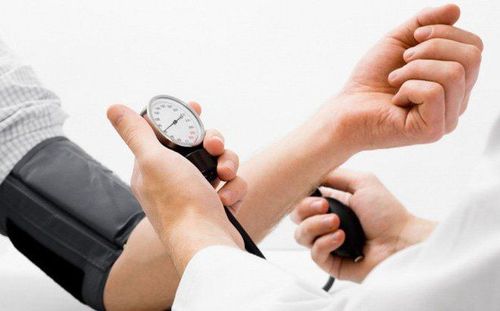This is an automatically translated article.
Stress is the body's response to pressure. It can be a physical, mental, or emotional reaction. The higher the stress level, the greater the impact on health. Therefore, measuring your stress levels can help you recognize and address problems before they damage your health.
1. Stress Levels
We all face stress at some point in our lives. Stress can stem from work, family, or money troubles. Not all stress is bad, as it can help you become more aware of everything around you. In some cases, stress can provide motivation and make you more productive.
2. What is a stress measurement?
Stress gauge is a measure of how much stress life situations exert on a person. If the stress level is measured on a scale of 1 to 10, there are 3 levels of stress as follows:
1-3 points: Mild stress. 4-7 points: Moderate stress level. This is the most common stress level. If this level of stress lasts more than 4 - 8 hours, it can make you tired and show many other symptoms. 8-10 points: High stress level. At this level, people under stress will change their behavior, appear wrong actions, and need immediate help.

Đo lường mức độ căng thẳng là thước đo cấp độ căng thẳng tác động lên một người.
3. Symptoms of Excessive Stress
You may be under a lot of stress without even knowing it. Maybe you have certain physical symptoms and blame it on another disease or condition. But the truth is, stress itself can cause problems in every organ of the body. Depending on how you deal with stress, you can have symptoms that range from endocrine to cardiovascular and beyond.
Some signs that stress levels are too high include:
Pain or tightness in the head, chest, stomach and muscles: Muscles tend to tense up when stressed and over time this can can cause headaches, migraines, or musculoskeletal problems. Digestive problems, which can include diarrhea and constipation, or nausea and vomiting: Stress can affect how quickly food moves food as well as your gut's ability to absorb nutrients. Reproductive problems: Stress can cause changes in sex drive, irregular periods in women, problems with sperm production in men, and impotence. Both men and women can experience a decrease in sex drive when under extreme stress. Changes in heart rate and blood pressure: When stressed, the body adapts by triggering the adrenal glands to release the hormones cortisol and adrenaline. These hormones can make the heart beat faster and raise blood pressure. This usually happens when there is a temporary stressor and goes away when the stress is gone. However, over time, too much of this acute stress can cause inflammation of the arteries, contributing to heart attacks. Neuropsychiatric and emotional symptoms: High levels of stress can also affect the way you think and feel, making it hard for you to work through it to make rational decisions. In some cases, excessive stress can affect behavior in other ways, and some people will use drugs, alcohol, tobacco, or other harmful substances to cope with negative emotions. Excessive stress can also affect appetite, causing you to eat less or more than usual: High stress levels can also affect or eliminate your motivation to exercise and stay in shape. Additionally, the feeling of being faced with persistently high levels of stress can make you feel like withdrawing from friends and family and isolating yourself. If stress is left unresolved, it can lead to depression over time.
4. What to do when under excessive stress?
Whatever the level of stress, you should release the pressure. There are many ways to reduce stress levels, including:
Exercise: Jogging, swimming, dancing, aerobics. Eat sensibly, especially eat foods rich in antioxidants such as vegetables, fruits... Get enough sleep. Yoga, relaxation exercises. Deep breath. Spend more time on your hobbies, share your feelings with family and friends. If you are stressed and don't know how to cope, you can seek help from a psychologist. They can help you figure out if the signs and symptoms you're experiencing are due to a medical problem or an anxiety disorder. Some signs of excessive stress that require a doctor's help are as follows:
Decreased work or school performance. Substance abuse, alcohol, drugs, or tobacco to deal with stress. Eating and sleeping habits change dramatically. Take actions that endanger yourself. There is irrational fear and anxiety. Having trouble completing daily tasks. Isolate yourself from friends and family. Thinking about suicide or hurting others. In a nutshell, it's normal to experience some daily stress and can even motivate you to make more progress. However, prolonged exposure to stress can have a negative impact on physical, mental, and emotional health. Knowing how to spot signs, symptoms, levels, and measure your stress levels can help you identify and address problems before they take their toll.
Please dial HOTLINE for more information or register for an appointment HERE. Download MyVinmec app to make appointments faster and to manage your bookings easily.
Reference sources: webmd.com, meditation-magic.com












